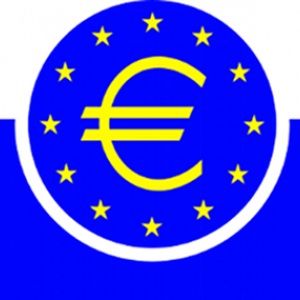Italian bonds rally as higher yields entice buyers on ECB bets

By Bloomberg
Italian government bonds rose as yields near a two-month high following a selloff in the past week enticed investors back to securities that are supported by prospects of additional European Central Bank stimulus.
The extra yield investors get for holding Italy's 10-year debt instead of equivalent German bunds narrowed from near the widest in seven months reached last week, amid concern the region's economy is faltering. The ECB was said to have bought Italian covered bonds today, while Reuters reported the central bank was considering purchasing corporate debt. Portugal's 10- year bonds advanced, along with Spain's. Finland sold 15-year securities, the first auction since losing its top debt rating.
"People expect if yields go much higher in peripheral countries the ECB will be forced into action quicker and that will keep a lid on how far" the yields can rise, said Allan von Mehren, chief analyst at Danske Bank A/S in Copenhagen. "It's going to be nervous still for the rest of the year."
Italy's 10-year yield fell seven basis points, or 0.07 percentage point, to 2.53 percent at 1:16 p.m. London time after touching 2.74 percent on Oct. 16, the highest since Aug. 13. The 3.75 percent bond due September 2024 climbed 0.6, or 6 euros per 1,000-euro ($1,276) face amount, to 110.735.
That left the yield spread with similar-maturity bunds at 166 basis points after expanding to 202 basis points on Oct. 16, the widest since March 5. The rate on benchmark German bunds increased three basis points to 0.88 percent.
ECB Purchases
The Frankfurt-based ECB bought covered bonds from the euro area's third-largest economy on the second day of its purchase program, according to two people familiar with the matter, who asked not to be identified because they're not authorized to speak about it.
The ECB entered the 2.6 trillion-euro covered bond market after President Mario Draghi unveiled plans last month to bolster companies' and households' access to financing. Yields surged from Italy to Portugal last week amid renewed concern Greece would struggle to fund itself and as data signaled the euro area was heading toward another recession.
The central bank may decide whether to buy corporate bonds as soon as December, Reuters reported, citing people familiar with the situation. The ECB has already carried out work on such purchases, according to the news service, which cited an ECB spokesman saying "the Governing Council has taken no such decision."
Measures 'Insufficient'
"It is evidence that the ECB may be acknowledging that the current measures are insufficient," said Peter Chatwell, a fixed-income strategist at Credit Agricole SA's investment banking unit in London. "We can conclude that the ECB is considering doing more to expand its balance sheet."
The yield on Portuguese 10-year securities dropped six basis points to 3.42 percent. The rate climbed to 3.75 percent on Oct. 16, the highest level since Aug. 13.
Spain's 10-year yield fell three basis points to 2.24 percent after climbing to 2.42 percent on Oct. 16, the most since Sept. 12.
Finnish bonds were little changed after the nation sold 1 billion euros of debt due in July 2028. The securities were allotted at an average yield of 1.412 percent, compared with a rate of 2.291 percent at a previous sale in January 2013.
Finland's 10-year bond yielded 1.04 percent today.
Standard & Poor's cut Finland's credit rating by one level to AA+ on Oct. 10, citing the risk of economic stagnation.
Volatility on Portuguese bonds was the highest in the euro area today, followed by those of Belgium and France, according to measures of 10-year debt, the yield spread between two- and 10-year securities and credit-default swaps.
Italian government securities returned 11 percent this year through yesterday, Bloomberg World Bond Indexes show. Spain's gained 13 percent, Germany's 7.9 percent and Portugal's earned 17 percent.
Here we are to serve you with news right now. It does not cost much, but worth your attention.
Choose to support open, independent, quality journalism and subscribe on a monthly basis.
By subscribing to our online newspaper, you can have full digital access to all news, analysis, and much more.
You can also follow AzerNEWS on Twitter @AzerNewsAz or Facebook @AzerNewsNewspaper
Thank you!
